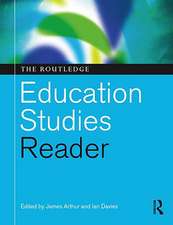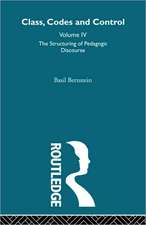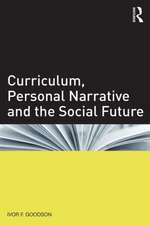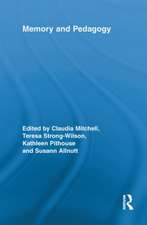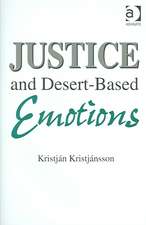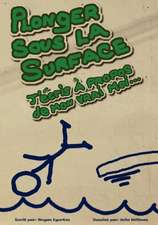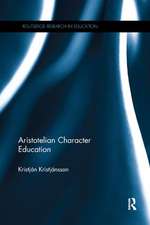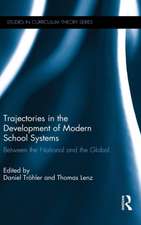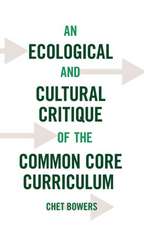Teaching Character and Virtue in Schools: Citizenship, Character and Values Education
Autor James Arthur, Kristján Kristjánsson, Tom Harrison, Wouter Sanderse, Daniel Wrighten Limba Engleză Hardback – 25 iul 2016
The books calls for subject competence to be complemented by practical wisdom and good character in teaching staff. It posits that the constituent virtues of good character can be learned and taught, that education is an intrinsically moral enterprise and that character education should be intentional, organised and reflective. The book draws on the Jubilee Centre’s expertise in support of its claims and successfully integrates the fields of educational studies, psychology, sociology, philosophy and theology in its examination of contemporary educational practices and their wider effect on society as a whole. It offers sample lessons as well as a framework for character education in schools.
The book encourages the view that character education is about helping students grasp what is ethically important and how to act for the right reasons so that they can become more autonomous and reflective individuals within the framework of a democratic society. Particularly interested readers will be educational leaders, teachers, those undertaking research in the field of education as well as policy analysts with a keen interest in developing the character and good sense of learners today.
Preț: 1054.75 lei
Preț vechi: 1286.28 lei
-18% Nou
Puncte Express: 1582
Preț estimativ în valută:
201.85€ • 219.18$ • 169.55£
201.85€ • 219.18$ • 169.55£
Carte tipărită la comandă
Livrare economică 22 aprilie-06 mai
Preluare comenzi: 021 569.72.76
Specificații
ISBN-13: 9781138907614
ISBN-10: 1138907618
Pagini: 210
Ilustrații: 4
Dimensiuni: 156 x 234 x 18 mm
Greutate: 0.45 kg
Ediția:1
Editura: Taylor & Francis
Colecția Routledge
Seria Citizenship, Character and Values Education
Locul publicării:Oxford, United Kingdom
ISBN-10: 1138907618
Pagini: 210
Ilustrații: 4
Dimensiuni: 156 x 234 x 18 mm
Greutate: 0.45 kg
Ediția:1
Editura: Taylor & Francis
Colecția Routledge
Seria Citizenship, Character and Values Education
Locul publicării:Oxford, United Kingdom
Public țintă
Postgraduate and ProfessionalCuprins
1 Wisdom in the Craft of Teaching 2 What is ‘Character Education’? 3 Digging Deeper into the Purpose and Meaning of Character and Character Education 4 How does Children’s Moral Character Develop? 5 Classroom-Based Approaches to Character Education 6 Whole School Approaches to Character Education 7 How Can We Measure Virtue and Evaluate Programmes of Character Education? 8 Character Education Books, Papers and Resources 9 Primary and Secondary Sample Lessons
Notă biografică
James Arthur is Professor of Education, Deputy Pro Vice Chancellor (staffing) and Director of the Jubilee Centre for Character and Virtues at the University of Birmingham, UK.
Kristján Kristjánsson is Deputy Director at the Jubilee Centre for Character and Virtues and Professor of Character Education and Virtue Ethics at the University of Birmingham, UK.
Tom Harrison is Director of Education at the Jubilee Centre for Character and Virtues at the University of Birmingham, UK.
Wouter Sanderse is Associate Professor of Teachers' Professional Ethics at Fontys University of Applied Sciences, Tilburg, the Netherlands and a former Research Fellow at the Jubilee Centre for Character and Virtues at the University of Birmingham, UK.
Daniel Wright is Deputy Head (Staff), St George's College, Weybridge and formally a Research Associate at the Jubilee Centre for Character and Virtues at the University of Birmingham, UK.
Kristján Kristjánsson is Deputy Director at the Jubilee Centre for Character and Virtues and Professor of Character Education and Virtue Ethics at the University of Birmingham, UK.
Tom Harrison is Director of Education at the Jubilee Centre for Character and Virtues at the University of Birmingham, UK.
Wouter Sanderse is Associate Professor of Teachers' Professional Ethics at Fontys University of Applied Sciences, Tilburg, the Netherlands and a former Research Fellow at the Jubilee Centre for Character and Virtues at the University of Birmingham, UK.
Daniel Wright is Deputy Head (Staff), St George's College, Weybridge and formally a Research Associate at the Jubilee Centre for Character and Virtues at the University of Birmingham, UK.
Descriere
This is a book that teachers can consult when they want to ‘teach’ character in their classroom or school. It informs teachers about what it means to teach character and it inspires them to find out how to go ahead with character education in their own context. It provides pointers and advice on how to implement character education, for example through strategies, links to available resources, and case studies, etc. The content will be philosophically and scientifically sound, based on nuanced Aristotelian assumptions, and educationally useful. The book is also accessible to teachers who are not assumed to have any knowledge about ethics.







